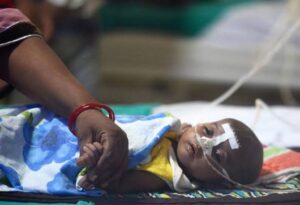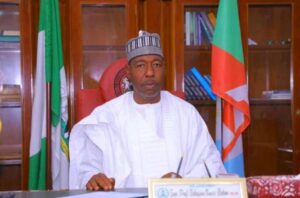
By Kabiru Yakubu
About 90 million people – roughly half Nigeria’s population live in extreme poverty, according to estimates from the World Data Lab’s Poverty Clock. Around June 2018, Nigeria overtook India, a country with seven times its population, at the bottom of the table. Put in another context, if poor Nigerians were a country it would be more populous than Germany. Almost six people in Nigeria fall into this trap every minute.
Extreme poverty statistics have always been controversial. A number of countries and experts disagree with the way it is measured in monetary terms – the World Bank’s $1.90 earnings-per-day benchmark. But no matter what the arguments might be, at the root of poverty lies the deprivation of people’s access to basic necessities such as food, healthcare and sanitation, education and assets. Other evidence including from India shows that solving these issues generally lifts populations out of extreme poverty.
As global attention turns towards my country, Nigeria, here are three ways that concerned stakeholders and policymakers can assist in the efforts to achieve the first of the Sustainable Development Goals (SDGs) to end poverty.
1. Investment in girls’ education:
Nigeria is home to over 10 million out-of-school children, around half of whom are girls and it is hardly coincidental that the country with the world’s highest number of out-of-school children is home to the highest number of people living in extreme poverty. Two-thirds of this population are concentrated in Nigeria’s highly populated north west and north-eastern regions, both of which have been ravaged by the terror group, Boko Haram, resulting in an educational emergency affecting about 2.8 million children.
The 2018 Global Multidimensional Poverty Index (MPI) of the Oxford Poverty and Human Development Initiative best presents this picture. The poorest parts of Nigeria had the worst education indicators (school attendance and years of schooling) and these constitute the biggest percentage contribution to the MPI, followed by nutrition and child mortality – all issues that affect women the most.
Educating girls is proven to have both economic returns and intergenerational impact. For Nigeria to improve on this front, it must increase its investment in education.
Kaduna state for example has consistently increased its education budget over the past decade. As a result, enrolment figures have doubled from 1.1 million students in 2015 to 2.1 million students in school today. The state now ranks the highest in the northern region, recording the highest score in the senior school certificate examinations.
2. Invest in health and wellbeing:
Increased investment in healthcare is linked to economic growth, and consequently to reducing poverty. Nigeria is battling with a number of crushing health indicators including malaria, tuberculosis and infant and maternal mortality, all of which have a sweeping impact on productivity.
In order to end poverty, we must harness the demographic dividends through investment in health, education and livelihoods – especially for our young people. In remarks he made on October 2017, International Day for the Eradication of Poverty, the late Professor Babatunde Osotimehin – former executive secretary of the United Nations Population Fund – argued that “when countries’ age structures change favourably, meaning that they have more people of working age than dependents, they can see a boost to development, known as a demographic dividend, provided that they empower, educate and employ their young people.”
Written by Kabiru Yakubu from Mass Communication Department Abubakar Tatari Ali Polytechnic Bauchi


